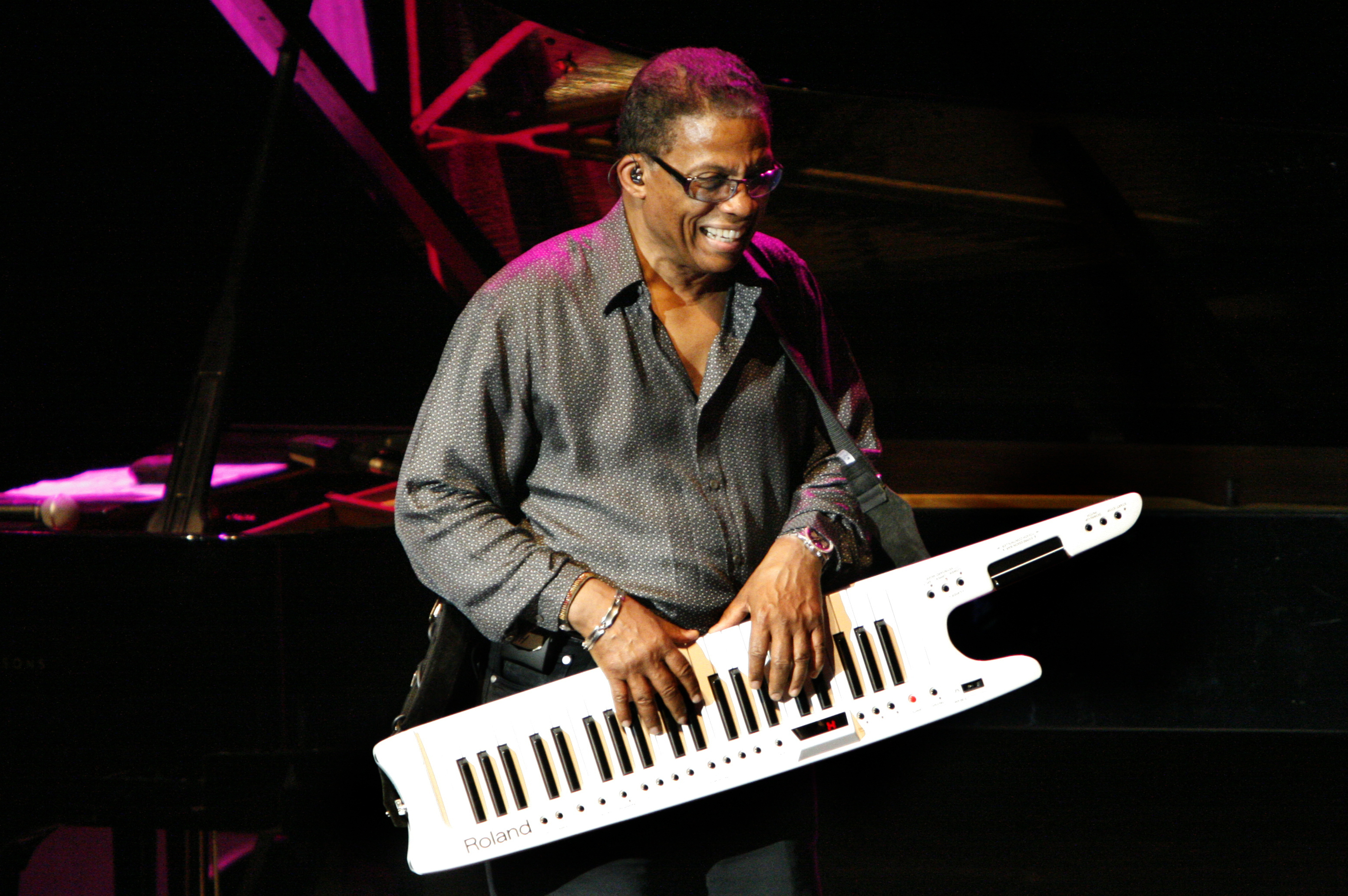Hancock, Herbie (1940-…), is a popular and influential jazz musician, bandleader, and composer. His 1973 recording Head Hunters became one of the best-selling albums in jazz history. The highly rhythmic album blends jazz and rock as performed by electronic piano and bass, synthesizers, keyboards, and percussion. The album’s hit single “Chameleon” won audiences in rhythm and blues, pop music, rock, and jazz. Hancock has won a number of Grammy Awards for his music.

Herbert Jeffrey Hancock was born in Chicago, Illinois, on April 12, 1940, and graduated from Grinnell College in Grinnell, Iowa, in 1960. He won praise for his first album, Takin’ Off, recorded in 1963. The album contained Hancock’s hit composition “Watermelon Man.” From 1963 to 1968, Hancock played piano in a famous quintet led by Miles Davis. During this time, Hancock wrote several major jazz compositions, including “Cantaloupe Island,” “Dolphin Dance,” “Maiden Voyage,” “Riot,” “The Sorcerer,” and “Speak Like a Child.”
After leaving Miles Davis, Hancock formed a sextet that introduced the electronic jazz that would make him famous. He broke up the sextet in 1973 and formed a quartet that became the cornerstone of Head Hunters. From that time through the 1990’s, Hancock alternated performing pure jazz, electronic jazz-rock, and pop-oriented music. His jazz-rock album Future Shock (1983) became a best seller. Hancock also composed music for motion pictures and television. He won the 1986 Academy Award for his score for ‘Round Midnight. Hancock became a Kennedy Center Honoree in 2013. His autobiography, Possibilities, was published in 2014.
